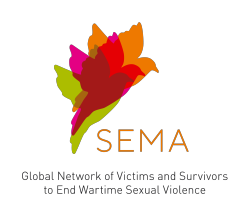International Humanitarian Law
III.13 States must provide victims/survivors of CRSV with access to justice
The obligation to treat all civilians and persons not taking an active part in hostilities without 'adverse distinction' requires States to remove and prevent barriers that victims/survivors of CRSV may face before accessing the protections guaranteed under IHL. The prohibition of 'adverse distinction' comprises seemingly neutral measures that have the effect of adversely affecting certain persons.
Counter-charges are examples of such measures: they include laws that criminalise acts such as adultery, 'even where the act is non-consensual', and laws that criminalise homosexuality. Their enforcement results in the victim/survivor having to choose between silence or a risk of facing charges after reporting sexual violence. Victims/survivors must be able to obtain justice without suffering negative consequences.

 EN
EN FR
FR ES
ES UK
UK



